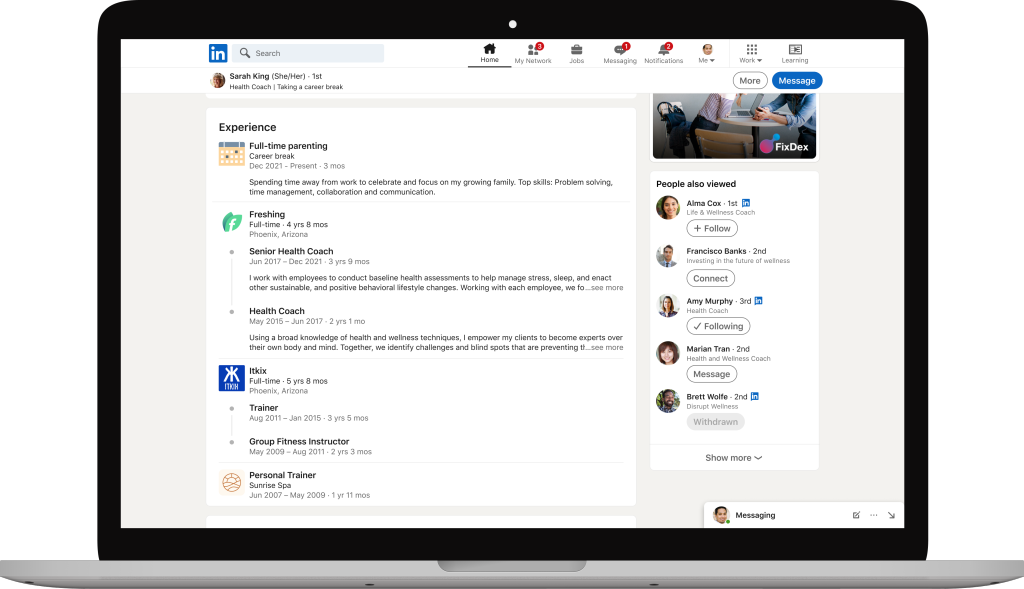Over the past few years, we’ve seen these work pauses increase even more as the pandemic upended the traditional workplace. Many people were forced to leave their jobs; others chose to take a career break to better manage life outside of work. Women especially have been impacted, with 54 million women out of jobs globally during the first year of the pandemic.
To understand more about career breaks, we recently surveyed nearly 23,000 workers and more than 4,000 hiring managers and found that nearly two-thirds (62%) of employees have taken a break at some point in their professional career, and just over a third (35%), mostly women, would like to take a career break in the future.
Yet even with career breaks becoming more popular, some hiring managers are still hesitant to pursue those who have taken a break — indeed, one in five hiring managers say they outright reject such candidates.
But we’re also seeing a shift in perspective: We’ve found that nearly half of employers believe candidates with career breaks are an untapped talent pool.
Today, we’re introducing Career Breaks on the LinkedIn Profile. We are hoping this new feature will make it easier for candidates and recruiters to have open conversations around the skills and experiences professionals amass away from the traditional workplace.
LinkedIn introduces Career Breaks, which will better capture a job seeker’s life experiences
We’re rolling out the ability for our members to add a Career Break to their Profile, whether it was taken for full-time parenting, bereavement, caregiving, a gap year, layoff, or other life needs or experiences. We’ve heard from our members, including 68% of women, who’ve said they wanted more ways to positively represent their career breaks by highlighting skills learned and experiences they had during a work pause.
And for talent professionals, these highlighted pauses will soon show up in Recruiter when they search for candidates. You’ll be able to see how the life experiences and skills people have built while they are away will match the skills that you’re looking for in your open roles.

“At Amazon, we understand that whether planned or unplanned, life happens and careers can be interrupted,” says Alex Mooney, senior manager of DEI talent acquisition at Amazon. “When a professional pauses their career, the decision is not taken lightly and we believe that restarting a career should not be as challenging as some find it to be. LinkedIn’s Career Breaks will help recruiters more easily identify talented professionals who are on a break and align them to opportunities such as the Amazon Returnship Program.”
Professionals who take a career break are often polishing skills or developing new ones
What some employers may not realize are the varied benefits that a career break can bring: fresh perspectives, new skills, and a renewed sense of energy.
Over half (56%) of employees say they acquired new skills or improved existing ones — such as problem-solving, communication, and budgeting — during their career break. And over half (54%) of women say they are better at their job than they were before.
During a five-year career break dedicated to raising a family, LinkedIn member Kristan Gross never stopped improving her skills — learning how to better lead people, manage budgets, and plan strategically. She says she also grew in emotional intelligence. “All the things I would be doing in a managerial position,” says Kristan, now the executive director of the Vision Impact Institute, “I was doing while managing three very different personalities — all of whom were under the age of 4. Don't ever diminish the value of resume gaps; life is often the very best teacher.”
Embrace candidates who have taken career breaks by spotlighting their skills and rethinking your go-to interview questions
While it may take some time to destigmatize career breaks globally, there are some things companies can be doing now, especially during the interview process. We found half (51%) of employers would more likely call a candidate back if they knew the context of why they took a career break.
Here is what we are doing at LinkedIn, along with some tips for employers:
- Recognize the whole person. Rather than looking only at a candidate’s most recent experience — whether that’s a career break or their latest job — remember to look at the full set of skills they’ve developed throughout their lived experiences, whether those experiences be personal or professional. Identify what abilities you need for the role at hand and assess candidates against that — and that only.
- Skills know no boundaries. As our insights show, a career break is a time when people learn and develop new skills. Think of a new parent or someone who is taking a break for caregiving responsibilities: Compassion, empathy, and caring are all skills they’ve likely developed during this time. Make sure to ask about the skills a person has — and what they want to learn in the role — and how those can be applied to the open role.
- Help candidates put their best foot forward. We know that the interview process can be nerve-racking for anyone, especially if candidates have been out of the workforce for some time. Help the interviewee feel comfortable and shine by asking questions that are inclusive of those who might be coming off of a career break. Provide the candidate an opportunity to share what they have learned that could be applied to the role, regardless of whether that skill was learned outside of work. What are some things you learned during your break? How would you apply those skills in this role?






